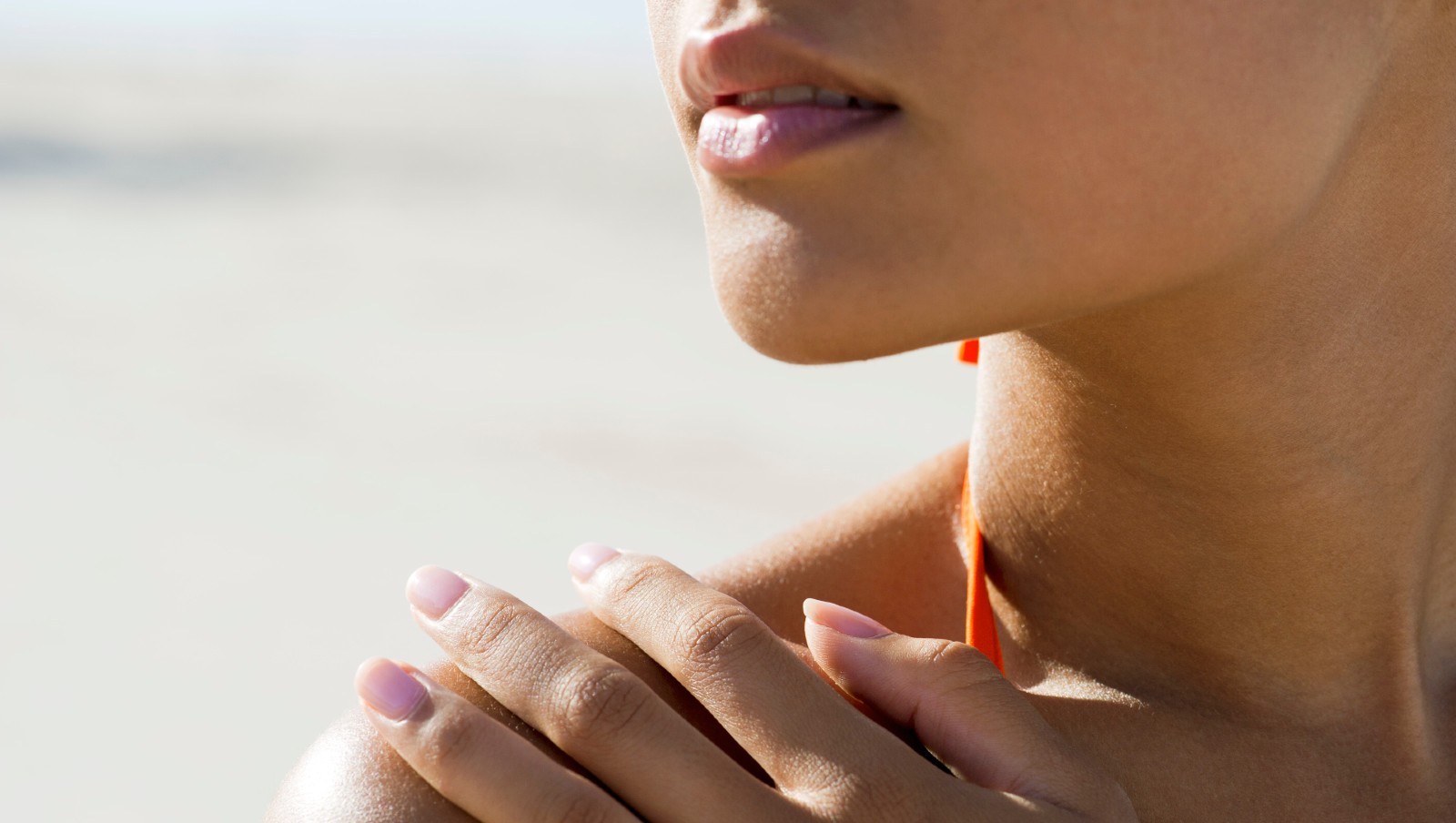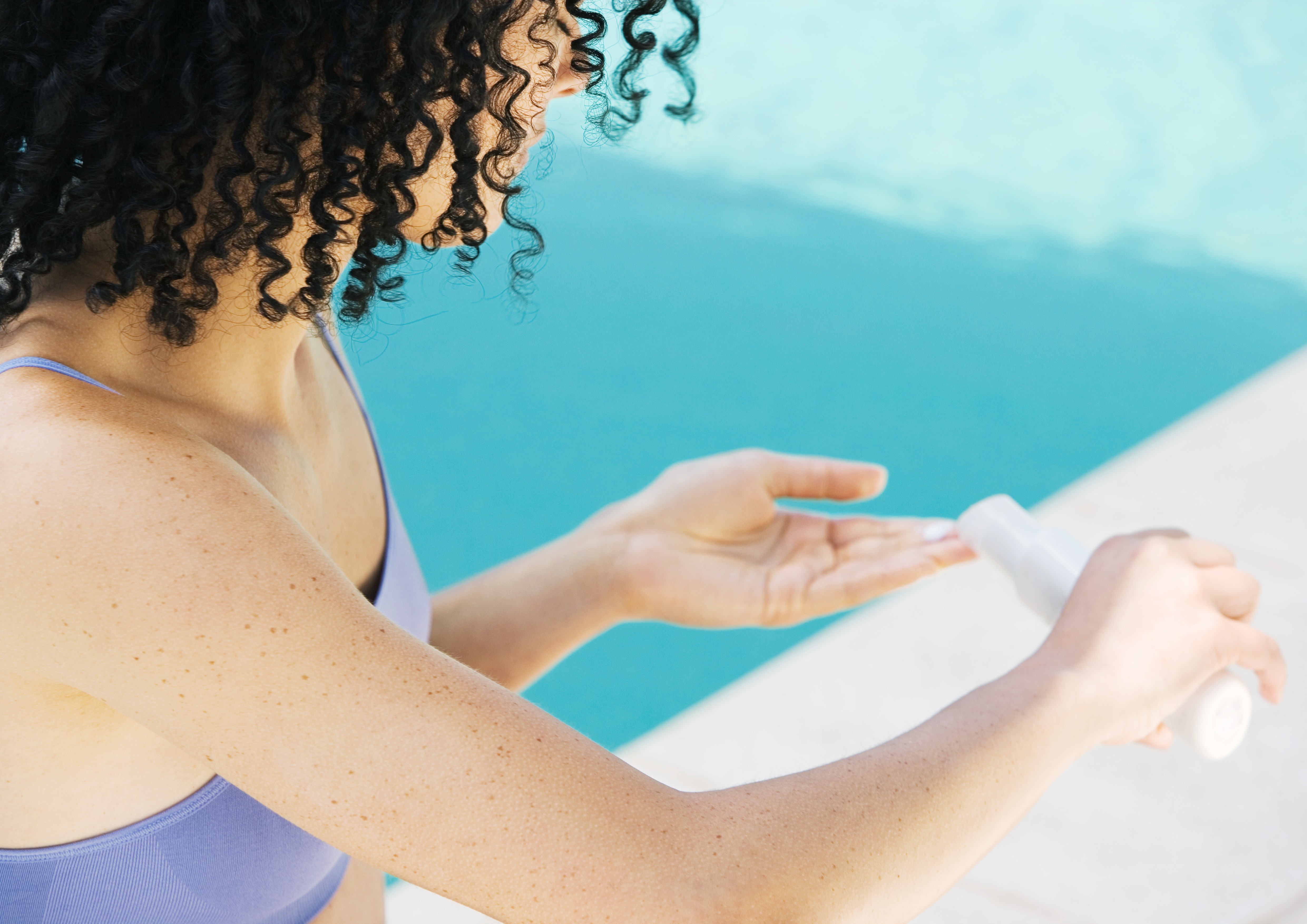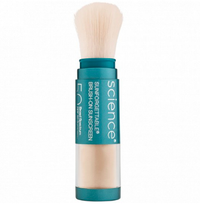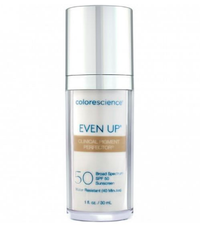3 summer skincare dos and don’ts, according to a skin expert
Summer skincare means a safer glow (skip the tanning oils!) and, yes, SPF all the way


When you think of summer skincare, one thing comes to mind—SPF. And with good reason. Basking in the sunlight is one of the best parts of summer, whether you're lounging beachside, by the pool or just in your own backyard. It’s especially nice getting some color after the cold winter weather (and, yes, current global situations) have kept us bundled up indoors.
While some sun exposure is good for you (load up on that vitamin D while you can) too much sun can end up causing wrinkles, dark spots and, of course, painful sunburn. Keeping your skin protected, especially during the summer months, is beneficial to your skin's overall health.
Incorporating a good SPF into your skincare routine (we recommend this popular sunscreen mist) is important for keeping your skin protected, even during the winter months.
More from woman&home:
• Best eye cream: our favorite formulas for every skin type
• Best moisturizers for dry skin: the top buys according to a beauty editor
• Best face masks: for every skin type and budget
As we adjust our skincare routine to the summer weather, SkinSpirit's lead aesthetician Karen Fernandez shared her three most essential tips for keeping your skin healthy and glowing this summer.
Summer skincare tips
1. Avoid chemical sunscreen
Karen advises using a physical sunblock rather than a chemical sunscreen to prevent damage to your skin.
Sign up to our free daily email for the latest royal and entertainment news, interesting opinion, expert advice on styling and beauty trends, and no-nonsense guides to the health and wellness questions you want answered.
“Chemical sunscreens work by absorbing UV rays and then converting them into heat energy on top of the skin, but physical sunblocks containing zinc oxide or titanium dioxide act as a literal blocker on top of the skin, reflecting UV rays instead of absorbing,” she explains.
It's also better for those with sensitive skin and, yes, children. “Because you don’t absorb the active ingredients from the sunscreen, physical sunblocks usually don’t irritate the skin,” Karen adds.
Also good to know—a lot of tourist destinations have banned chemical sunscreens due to the coral-bleaching properties in some of their active ingredients. We get into these in detail in our round up of best facial sunscreens.

2. Take your skin type into consideration
Everyone's skin is different, meaning that your skin needs may be different from others. Not every sunscreen will be the one for you, and knowing what type of skin you have will help determine the type of formula you should provide your skin with.
“If you’re acne-prone, you’ll want to be especially careful to choose an oil-free SPF with a light texture and may even want to consider powder options,” Karen explains. “Those with dry skin, on the other hand, can tolerate a thicker texture but will need a deeper exfoliation afterward to keep their skin clean.”
3. Consider a medical-grade sunblock
The difference between a medical-grade formula compared to the rest, according to Karen, is the type of nutrients it supplies your skin with. If you are able to find a skin-matching tint, even better, as it can double as make-up.
“There’s no need to layer SPF under make-up or skimp by relying on your make-up’s SPF, which is always weak," she says. She also recommends using antioxidants under your SPF. “Your first layer of defense is vitamin C in the morning!” Applying a light layer of the best vitamin C serum for your skin type can do wonders in staving off sun damage, particularly in the more sun-exposed months of summer.
Over time, sunscreen can build up on your skin, so Karen also recommends exfoliating skin “a couple of times a week to remove any sunscreen residue.”
Expert-recommended sunblock
Colorscience Sunforgettable Total Protection
This is a favorite of Karen's as it comes in a travel-size bottle and provides SPF 50 broad-spectrum protection alone or over make-up.
“I always have this in my bag! I love using it as the finishing touch of powder to my morning routine and then reapplying as needed throughout the day. It's small enough to fit in a pocket and totally mess-free.”
Colorscience Even Up Clinical Pigment Perfector
Made with SPF 50, this formula aims to correct, protect and brighten skin. It even aims to fade dark spots to help your skin return to its natural appearance.
woman&home thanks Karen Fernandez of SkinSpirit for her time and expertise.
Rylee is a U.S. news writer who previously worked for woman&home and My Imperfect Life covering lifestyle, celebrity, and fashion news. Before joining woman&home and My Imperfect Life, Rylee studied journalism at Hofstra University where she explored her interests in world politics and magazine writing. From there, she dabbled in freelance writing covering fashion and beauty e-commerce for outlets such as the TODAY show, American Spa Magazine, First for Women, and Woman’s World.


